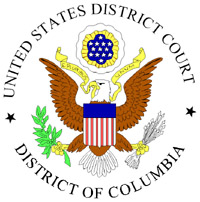
July 2013


Elasticity, Incompleteness, and Constitutive Rules
In A legal theory of finance, Katharina Pistor outlines a theory designed to deal with the law-finance paradox, that is, the observation that when “the full force of law is relaxed or suspended to take account of changes in …
Free Markets and the Legal Theory of Finance
Richard Shamos is an Associate in the Investment Management practice at Schulte Roth & Zabel LLP in New York.
The relationship between free markets and government is perhaps one of the most prominent economic issues of modern political economy. In …

Improving Benefit Corporation Law
Haskell Murray is an Assistant Professor of ADR and Business Law at Belmont University, College of Business Administration in Nashville, Tennessee.
Social enterprises use commercial activity to drive revenue and seek the common good. The benefit corporation is the most …

The Jaime Dimon Vote: Corporate Governance at the Crossroads
JPMorgan shareholders’ recent rejection of a proposal to split the CEO and Chairman positions was the most talked about proxy vote during the 2013 annual meeting season. While the 68% to 32% vote against was a resounding victory for Jamie …

The Marketplace of Ideas: Professor Anna Gelpern and James P. Sweeney Weigh in on Pistor’s Legal Theory of Finance

Rules, Institutions, and the Legal Theory of Finance
The International Monetary Fund (IMF) recently published its first major policy treatment of sovereign debt restructuring since 2003. It was prompted by the flawed restructuring in Greece, high profile litigation against Argentina, and recurring crises in smaller …

In Search of Broader Perspectives about our Financial System
James P. Sweeney is a Managing Director on the Global Strategy Team in Fixed Income Research at Credit Suisse in New York.
Increasingly, economists and regulators are seen on trading floors and investors are seen in libraries. The challenge of …

U.S. District Court Upholds the Conflict Minerals Rule, but Vacates the Resource Extraction Rule
The U.S. District Court for the District of Columbia has released two important rulings this month that speak to the SEC’s ability to promulgate rules. On July 23rd, the court upheld the SEC’s conflict minerals rule (see here) and …

Evaluating Dodd-Frank and International Approaches to Clearinghouses, Central Banks, and Swap Lines
On June 26, in a House Committee on Financial Services hearing, “Examining How the Dodd-Frank Act Could Result in More Taxpayer-Funded Bailouts,” former FDIC Chair Shelia Bair testified to being “surprised at the lack of concern over the designation of …
Square Root Voting: A New Approach to Regulation of Chaebol, Keiretsu, and Other Conglomerate Organizations in Asia
The economies of several important Asian countries are dominated by large business groups. Many of them are family controlled, such as those in South Korea (known as “chaebol”), Israel and India. Others are not, the most notable example of which …

The Institute for the Fiduciary Standard Awards Its First “Oscar”
The Institute for the Fiduciary Standard, a non-profit organization dedicated to the advancement of fiduciary principles, has awarded its first ever Tamar Frankel Fiduciary Prize to Robert A.G. Monks, the corporate governance activist and scholar. The Frankel Fiduciary Prize is …

The Marketplace of Ideas: Cathy M. Kaplan and Jeremiah S. Pam Weigh in on Pistor’s Legal Theory of Finance

The Legal Theory of Finance is a Starting Point
In her article “A Legal Theory of Finance” Katharina Pistor outlines an important theory about the relationship between laws and finance and highlights the basic legal construction of finance. A legal theory of finance (LTF) asserts that the legal structure …

Sovereigns and Safety Valves in the Legal Theory of Finance
Katharina Pistor’s ‘Legal Theory of Finance’ (LTF) is an important contribution to our evolved understanding of international finance following the most recent (and in the case of Europe, ongoing) international financial crises. By probing the implications for international …

‘Neither Admit Nor Deny’: Practical Implications of SEC’s New Policy
In a move that appears at once to be shrewd, savvy and largely symbolic, the SEC has modified its longstanding policy that it will not require a defendant to admit or deny liability, or facts that might establish its liability,

SEC Adopts Bad Actor Disqualifications for Private Placements under Regulation D
The following post comes to us from Bradley Berman, Of Counsel at Morrison & Foerster LLP.
On July 10, 2013, the Securities and Exchange Commission (the “SEC” or “Commission”) adopted amendments to rules promulgated under Regulation D to implement Section …

The Marketplace of Ideas: Kathryn Judge takes on Katharina Pistor’s Legal Theory of Finance
The CLS Blue Sky Blog presents the second installment of our new series, entitled “The Marketplace of Ideas.” Earlier installments are available here. The intent is to present different perspectives on the same subject by two or more authors.…

Systemic Stability and Fairness: An Analysis of Pistor’s Legal Theory of Finance
In A Legal Theory of Finance, Katharina Pistor introduces a provocative new theory about the relationship between law and finance and the role of law in producing and addressing financial instability. Pistor shows that law plays a constitutive role …
 Sky Blog
Sky Blog